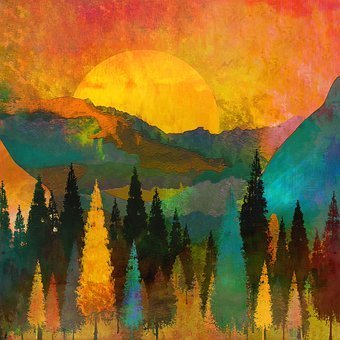I remember the rampant fear – or at least severe anxiety – aroused by the Great Recession, and perhaps you do, too. Retirees made up half the membership of the parish I served in those days, and near-retirees made up the third quartile – all people concerned that they might lose their homes, have to return to work, or be forced to work more years than they’d planned. One of my parishioners, Judy, was trained in the psychology of wealth transfer within rich families. She was smart, and together we offered an adult education series called simply, Spirituality and Money.
Judy asked people, What if? Fill in the blank, she’d tell them.
What if half your nest-egg disappears? (And, for some, it had.) What if you can’t retire on schedule? Or have to return to work? What if you have to move? What if, what if, what if?
The what if questions served their purpose. Most people (in Episcopal semi-affluent parishes) were going to be fine at the end of the day – at the end of the Great Recession. Will be fine at the end of coronavirus/COVID-19 pandemic. This exercise of what-ifs helped people come to grips with the violence of the unanticipated disruption to their lives.
Money, it turns out, is the gasoline, and not the engine. The engine is life. Money affords a person some liberty in the running of the engine. The question is always life, and how will I experience this extraordinary gift God has given me? How will I live today?
For years following the recession, I noticed that most of the cars I passed on the road were black, white, gray and (occasionally) garnet. Very rarely a bright yellow or orange Mini Cooper might pass me by, but most people seemed to be driving very bland cars. They all looked the same. Anecdotal, to be sure, but I attribute the lack of automotive imagination to anxiety. Recession fear – or anxiety – left people feeling dull, stung by challenging times.
The word, joy, does not mean happiness. Nor is joy the explosion of giddiness. Joy is deeper – a spiritual experience, something the Apostle Paul dubs a fruit of the spirit, and ranking right up there with love and peace. It seems people have to be reminded to live in joy, which is why Paul reminded the Philippians to rejoice, and why the Dalai Lama and Desmond Tutu wrote a book to do exactly that – teach people the secret to joy (The Book of Joy). You might expect Christians not to need such reminders or lessons. After all, what could possibly compare to the complete acceptance of the soul by God – and more – the regeneration – moving from life to death? Yet, there Paul is, alongside the Dalai Lama and Desmond Tutu, reminding Christians to live their joy.
If one were to imagine the color of joy, the answer would be bright yellow. Or sky blue or spring green. Joy is not dull, neither gray nor white. Neither black nor garnet.
Which leads me to ask, what color will you choose for your next car? Are you newly anxious because COVID-19 has forced you to face death? Your own mortality? Does life feel more fragile now than it did in January? To be sure, none of us is closer than the hair’s breadth away from death – and life – that we were at the year’s turn. The difference, perhaps, is we’ve waked-up. I hope.
Life is rooted neither in survival nor longevity, but in daily experience. The experience of grace, the continuous line of exhalations you’ve taken since breath number one. Each inhalation is a brand new gift.
Rejoice?
Psalm 137 poses the exile question, How can we sing the Lord’s song in a strange land? But, the question is all wrong. The right question is, How can we not sing the Lord’s song in a strange land?
So in terms of yellow or orange or blue or green, may our your faith glow neon red during this time of exile. Rejoice in the Lord always, and again I say, Rejoice!

